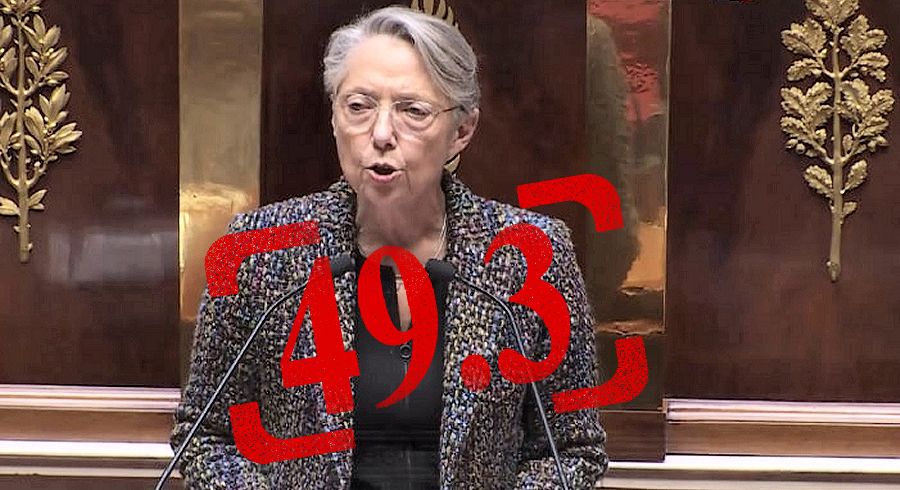PENSION REFORMTHE GOVERNMENT DRAWS THE 49.3 |
|
during the first five-year term, the reform had passed a parliamentary stage, then it had been buried under the sands of the Covid-19 epidemic. It was intended to be systemic, standardizing and universalizing a system of calculation by points instead of years of contribution, putting an end to special schemes. Today, the new version of this same reform appears to be a major challenge for Emmanuel Macron's second five-year term. It led to a rare trade union in France and a strong mobilization in the streets. It also generated heated debates in the National Assembly, bringing to light the dissension between the right represented by Les Républicains and Macronie. The sequence continues this Thursday, March 16, 2023 with the use of 49.3. Elisabeth Borne and her ministers kept repeating that they did not want to use 49.3 and that an agreement was still possible. But after an extraordinary Council of Ministers convened this morning, the government announced that it was going to have recourse to article 49.3 of the Constitution to have the text adopted this Thursday, March 16 in the National Assembly. “On the basis of article 49 paragraph 3 of the Constitution, I engage the responsibility of my government on the whole of the bill of amending financing law for Social Security for 2023”, announced Elisabeth Borne. Emmanuel Macron and Élisabeth Borne have indeed chosen the passage in force. The deputies did not vote on this text, the flagship measure of which is the decline in the legal retirement age from 62 to 64 years. The choice of 49.3 for the eleventh time A Council of Ministers was convened urgently this morning, in order to establish the strategy chosen to adopt this text. According to a participant in a final meeting of the presidential camp around Emmanuel Macron, "it was considered that there was too much uncertainty about the vote" because of the risk of a lack of majority. "The president wanted to go to the vote, but the Prime Minister considered that because of the uncertainties, she had to ask the President of the Republic to engage the responsibility of the government via 49.3", added this participant. For a few days, the macronists had indeed been busy to find out if they had a majority of deputies willing to vote in favor of the text, all the counts showing an extremely low margin of maneuver. No sensitive reform can be undertaken without the prior guarantee of a consensus with a majority share of the representation. The Macronist majority was counting on the LR party and its moderate right torn between its centrist aspirations and its fear of being overwhelmed by the RN. Deputies and senators reached an agreement on Wednesday on a common version of the disputed project, with the most decried measure, the postponement to 64 of the legal retirement age. This was essential for a final vote on Thursday in the National Assembly. Thursday, March 16, this text was submitted to the vote of the Senate, where the right-wing and centrist majority unsurprisingly approved it, then in the National Assembly, where the presidential camp does not have an absolute majority. There, the vote was uncertain: if the right-wing party Les Républicains said it wanted to adopt the reform, with this idea that this reform, as Bruno Retailleau said, is the reform of the right and that therefore not voting for it would be incoherent , many slingers in its ranks maintained the suspense. An admission of failure which shows that the majority, very unstructured, could not convince on this text, in particular on the right. Today, although a very large part of the public has declared itself unfavorable to the reform, the executive does not intend to give in. “We cannot play with the future of the country”, would have hammered the head of state this Thursday, March 16 in the morning. The stakes in this affair are as numerous as they are considerable, both domestically and internationally. The capacity of France to undertake, after the famous whatever the cost, a recovery of its public expenditure without digging more debt, can only reassure its European political partners. And this is an important issue in this period of rising interest rates. But it is in internal political life that the profit/loss game is potentially strongest. It could even mark a turning point in this second five-year term ...... while we are still asking questions about the form that social discontent will take. | |
| Alyson Braxton for DayNewsWorld | |
 |
|





